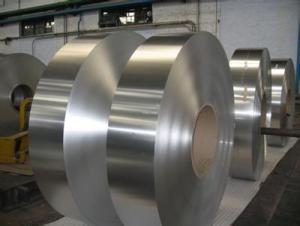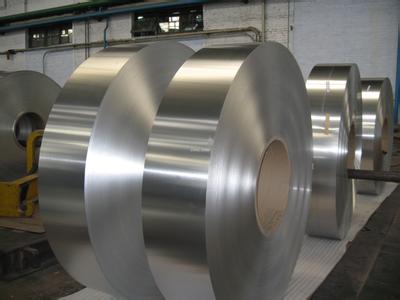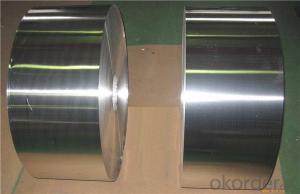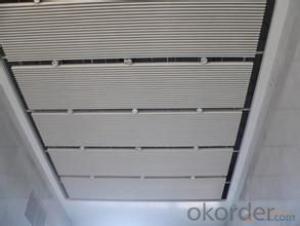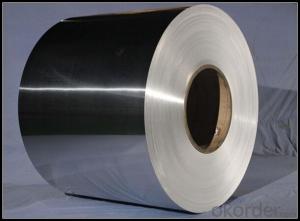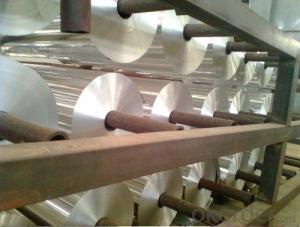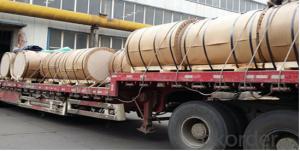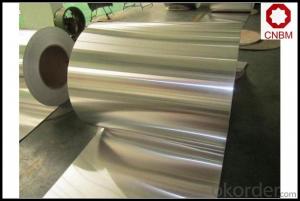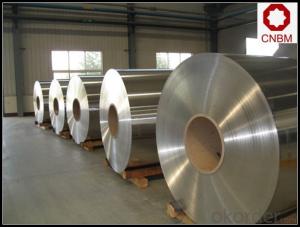Aluminum Coil Price Per Pound Weather Strip Seal
- Loading Port:
- China Main Port
- Payment Terms:
- TT or LC
- Min Order Qty:
- 8 m.t.
- Supply Capability:
- 2000 m.t./month
OKorder Service Pledge
OKorder Financial Service
You Might Also Like
Structure of Aluminium Weather Strip Seal Description:
They can be used in many field,such as: Building, curtain wall, ceiling, panels, transformers, food packaging, air conditioning, condenser, air filter, refrigerators, washing machines, solar energy, automobile manufacturing, ship manufacturing, machinery manufacturing, electric equipment such as cosmetic packaging, machinery manufacturing industry, can also be used in power plants, chemical anti-corrosion insulation in petrochemical industry, etc.
Main Features of Aluminium Weather Strip Seal:
a. Excellent corrosion resistence
b. Satisfactory anodizing
c. Conversion coating finishing characteristics
d. It is unmatched by any other commercial aluminum alloy in workability.
e. Readily to welding ,brazing, and soldering.
Images of Aluminium Weather Strip Seal:
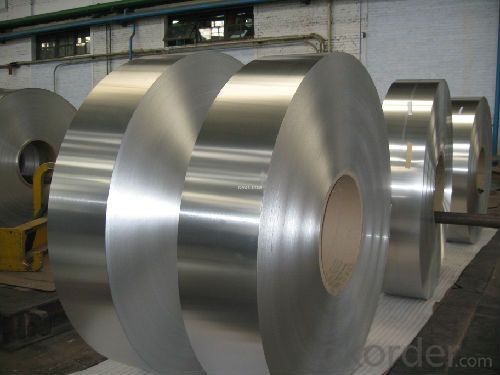
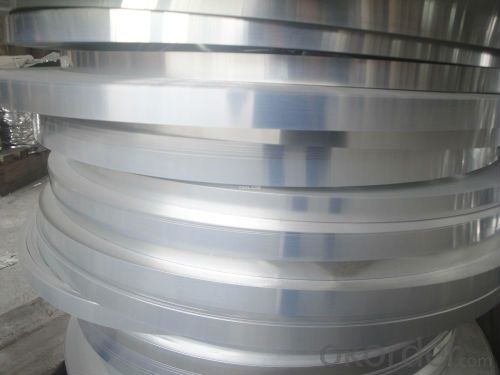
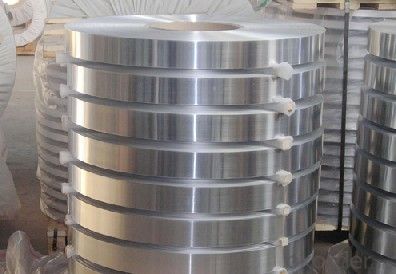
Aluminium Weather Seal Specification:
Item | Aluminum coil,Aluminum strip |
Standard | GB/T3190-2008,GB/T3880-2006,ASTM B209,JIS H4000-2006,etc |
Material | 1060,1200,1100,a1100P,3003,3004,5052,5652,5154,5254,5454,5083,5086,5056,5456, 2A12,2024,2014,6061,6063,7075,etc |
Thickness | 0.1-200mm |
Width | 2-2200mm |
Temper | T3-T8,O-H112,T351-T851,etc |
Unit weight | 5-15 tons per coil |
Price term | Ex-Work,FOB,CNF,CFR,CIF,FCA,DDP,DDU,etc |
Payment Term | TT,L/C,Western Union |
MOQ | 8000Kg |
FAQ of Aluminium Weather Seal:
a.What is monthly capacity
---CNBM is one stated own company and our monthly capacity is about 2000tons.
b. Now which countries do you export your goods?
---Now we export to South East Asia,Africa, North America,South America ect.
- Q: This question seeks to understand the environmental impact of discarded aluminum coils.
- <p>Discarded aluminum coils can have significant environmental impacts. They contribute to landfill waste and can potentially leach harmful substances into the soil and water if not properly managed. Aluminum production is energy-intensive, so recycling discarded coils reduces the demand for raw materials and conserves energy. However, if left in the environment, aluminum can also contribute to pollution and disrupt ecosystems. Proper recycling and disposal methods are crucial to mitigate these effects and promote sustainability.</p>
- Q: What are the rules or laws governing the use of aluminum coils?
- <p>Yes, there are regulations on the use of aluminum coils, which vary by country and industry. These regulations often pertain to safety, quality standards, and environmental impact. For instance, in the construction industry, aluminum coils used for roofing or cladding must meet specific standards for strength and durability. In food packaging, regulations may dictate the type of aluminum alloys used to prevent contamination. Additionally, there are environmental regulations that govern the disposal and recycling of aluminum coils to minimize their impact on the environment. Compliance with these regulations is crucial for manufacturers, suppliers, and users of aluminum coils to avoid legal penalties and ensure public safety.</p>
- Q: Can aluminum coils be welded?
- Yes, aluminum coils can be welded.
- Q: Is it safe and effective to use an oven to heat an aluminum coil?
- <p>Yes, you can use an oven to heat an aluminum coil, but with caution. Aluminum has a high melting point and can withstand high temperatures, making it suitable for heating in an oven. However, it's crucial to ensure that the coil is clean and free of any non-stick coatings or residues that could produce toxic fumes when heated. Additionally, monitor the temperature and duration of heating to avoid overheating, which might cause the coil to warp or degrade. Always follow safety guidelines and manufacturer's instructions for your specific oven and aluminum coil.</p>
- Q: What are the recognized standards that dictate the quality of aluminum coil?
- <p>Yes, there are several standards that define the quality of aluminum coil. These include ASTM B209, which specifies requirements for aluminum and aluminum alloy flat sheet, coil, and plate for general usage. ASTM B210 covers aluminum and aluminum alloy sheet and plate for heat-treating. Additionally, EN 485 is a European standard that specifies the requirements for aluminum and aluminum alloy cold-rolled sheets, strips, and plates. These standards outline dimensions, chemical composition, mechanical properties, and other quality aspects to ensure the material meets industry requirements.</p>
- Q: How do aluminum coils contribute to energy-efficient insulation?
- Aluminum coils contribute to energy-efficient insulation by serving as a barrier that prevents the transfer of heat. Due to aluminum's excellent thermal conductivity, it efficiently conducts and dissipates heat, reducing energy loss and improving insulation performance. Additionally, aluminum coils can be used in the construction of air conditioning and refrigeration systems, where they enhance energy efficiency by enabling better heat transfer and reducing energy consumption.
- Q: Does anyone know if aluminum skateboards are good?
- Yes aluminum skateboards are good and very light.
- Q: How do aluminum coils compare to other metal coils in terms of cost?
- Compared to other metal coils, aluminum coils are typically more cost-effective. This is mainly because of the plentiful availability of aluminum as a raw material and the relatively inexpensive extraction and production processes. Furthermore, aluminum coils provide a lightweight and long-lasting solution, thus reducing costs associated with transportation and installation. Moreover, aluminum is resistant to corrosion, which eliminates the necessity for frequent maintenance and replacement expenses. On the contrary, alternative metal coils like copper or stainless steel may have higher initial costs and necessitate additional coatings or treatments to prevent corrosion. Consequently, when evaluating the overall cost, aluminum coils are often a more economical option.
- Q: Can aluminum coils be used in coil coating processes?
- Yes, aluminum coils can be used in coil coating processes. Coil coating is a continuous and automated process that involves applying a protective or decorative coating to a coil of metal, typically steel or aluminum. Aluminum coils are commonly used in this process due to their excellent corrosion resistance, lightweight nature, and ease of forming. The aluminum coils undergo various pre-treatment processes like cleaning, chemical treatment, and primer application before the actual coating is applied. These coils are then coated with a wide range of materials, including paints, lacquers, and polymers, to enhance their appearance, durability, and performance. The coil coating process allows for efficient and consistent coating application, making it an ideal choice for various industries such as construction, transportation, and appliances.
- Q: Is it possible to utilize aluminum coils in the production of baking pans or trays?
- <p>Yes, aluminum coils are commonly used for making baking pans and trays due to their excellent heat conductivity, lightweight, and durability. Aluminum's non-reactive nature also makes it safe for food contact. However, it's crucial to ensure that the aluminum is food-grade and that the manufacturing process adheres to safety standards to prevent any health risks.</p>
Send your message to us
Aluminum Coil Price Per Pound Weather Strip Seal
- Loading Port:
- China Main Port
- Payment Terms:
- TT or LC
- Min Order Qty:
- 8 m.t.
- Supply Capability:
- 2000 m.t./month
OKorder Service Pledge
OKorder Financial Service
Similar products
Hot products
Hot Searches
Related keywords
